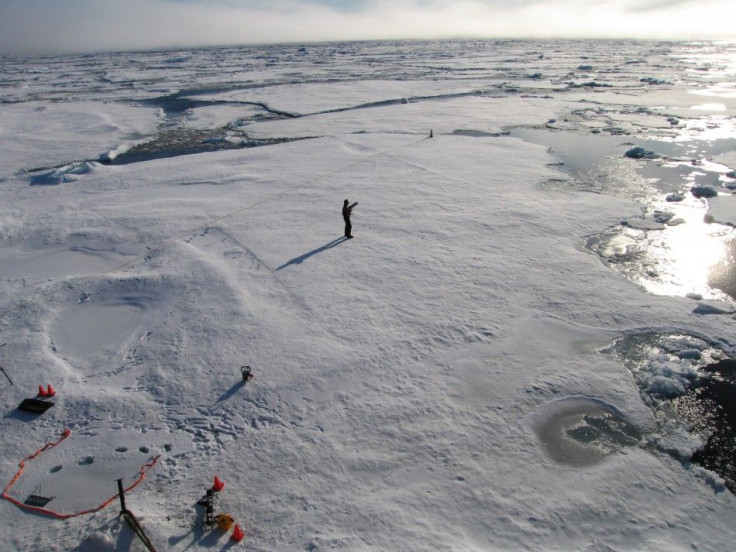Greenland Election: Autonomy Comes At What Price?

The people of Greenland, an autonomous, self-governing territory of Denmark, voted Tuesday in parliamentary elections that may also pave the way for the first female leader of the vast Arctic island.
The poll was also seen as a rejection of the incumbent government’s policy of allowing foreign companies to enter the country and freely exploit its massive natural resources.
The Copenhagen Post reported that Siumut, a social-democratic-oriented party, won 14 seats in the 31-seat parliament, scoring almost 43 percent of the popular vote. In the event that the chief of the Siumut party, Aleqa Hammond, can form a coalition, she will become Greenland’s first female premier.
Siumut returns to power in Nuuk, the capital, after a four-year absence. The incumbent premier, Kuupik Kleist, and his party, Inuit Ataqatigiit, came in second, with about 34 percent of the popular vote, giving it 11 seats in parliament.
At the center of the election lay the crucial issue of the development of Greenland’s considerable untapped energy, mining and natural resources by a multitude of foreign companies.
Global warming has thawed the sea ice around Greenland, making it easier for sailing vessels to reach the island through newly opened shipping routes.
Kleist’s administration wanted to open up Greenland’s rich resources to foreign energy and mining concerns on the basis that such endeavors would create plentiful jobs and improve infrastructure. Such foreign investments, he proposed, would help the island to reduce its dependence on the annual 3.5-billion kroner ($600 million) in funds it receives from Copenhagen. That figure amounts of one-half of Greenland’s annual budget.
Greenland also depends heavily on shrimp and fish exports for revenue.
"We can no longer base our economy on fisheries alone. We must get the mineral sector and industry moving," Kleist told reporters prior to the vote, according to the weekly newspaper Sermitsiaq.
Kliest’s opponents feared that too much commercial development would ruin Greenland’s environment and undermine its ancient hunting and fishing traditions and way of life.
"The central issue here is who will run the country?" Hammond told Reuters on Tuesday prior to the vote. "People feel that it is foreign companies who have too much say here."
The Copenhagen Post viewed that result as a rejection of Kleist’s policies – although Kleist claimed his party was punished for pushing through unpopular policies. He also accused Siumut of spreading false propaganda about his party.
“There has been too much secrecy about mining projects and too many problems for fishermen,” Hammond told reporters on Wednesday.
Given the apparent enmity between the two camps, it is unclear if Hammond would seek to form a coalition with Kleist or not.
But such an arrangement already exists on Denmark.
The Post noted that Siumut is affiliated with Denmark’s Socialdemokraterne (Danish Social Democrats), which is currently part of a coalition with the Socialistisk Folkeparti (Socialist People's Party), which is linked to Greenland’s IA.
Indeed, despite having gained increased autonomy in 2009, Greenland remains dependent on Denmark not only for the huge annual subsidy, but also must submit to Copenhagen’s decisions on foreign policy, defense and national security, the Post noted.
"The new government has to realize reforms. Greenland has to diversify its economy and get people better educated in order not to face ever increasing public spending," said Torben M. Andersen, a professor for economics and head of the Greenland's economic council, the Wall Street Journal reported.
Kliest had submitted that if Greenland generated revenue from its mining resources, it could gain greater freedoms from its Danish paymasters – this is something Hammond seems to agree with, although she and her party would prefer to manage the country’s assets differently, while imposing tougher rules on foreign investors.
“The most important thing for us is to work with someone who also views citizen involvement as the most important thing,” Hammond said, in a reference to planned mining operations by foreign companies.
“Development must be fair to all Greenlanders – both those in villages and those in cities.”
The Wall Street Journal reported that during the campaign, she vowed to introduce “royalties on resources and want to be more demanding when it comes to companies from abroad."
In contrast, Kleist proposed low taxes and cutting labor costs to attract overseas companies, as well as cheap foreign workers.
With less than 57,000 inhabitants living in a remote, mostly frozen island, Greenland barely registers on the global media map.
However, its vast untapped mineral resources could produce a financial bonanza – such foreign giants as Alcoa Inc. (NYSE: AA) and London Mining PLC (LON: LN) have expressed serious interest in Greenland, the Journal noted.
China also has an eye on Greenland – something Danish lawmakers and EU officials are concerned about. In fact, London Mining has proposed construction of a $2.3-bllion mining project near Nuuk which would potentially ship iron ore for China – and would also involve the importation of 2,000 Chinese construction workers.
China, as well as Australia, also have an eye on Greenland’s rare earth mineral deposits. Greenland Minerals and Energy, an Australian-owned firm, is exploring a rare earth deposit in southern Greenland – potentially it could be the biggest such mine outside of China,
"Everything is on hold for us with the election," Ib Laursen, operations manager at Greenland Minerals and Energy, told Reuters.
© Copyright IBTimes 2024. All rights reserved.











